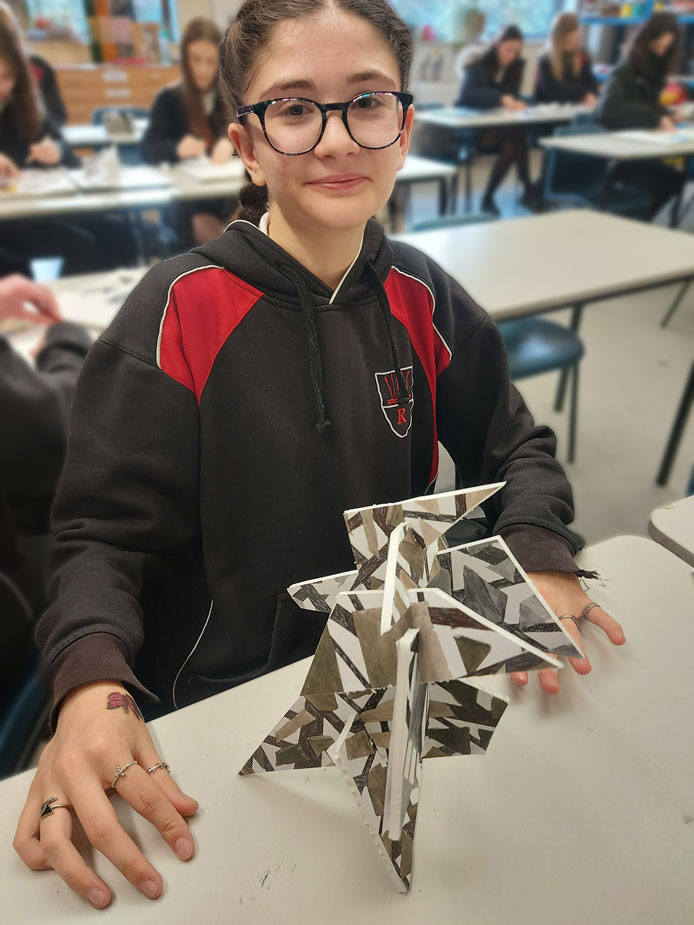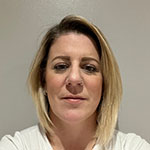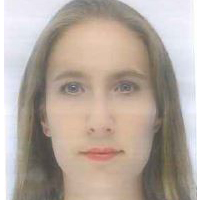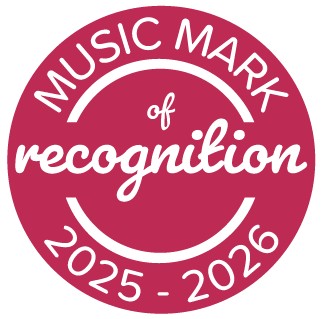SEND
Special Educational Needs and Disability (SEND) at Redborne
 Some students will at various stages in their learning require additional support, some more than others.
Some students will at various stages in their learning require additional support, some more than others.
At Redborne we adhere to the national code of practice for Special Educational Needs and Disabilities (SEND) to ensure that students’ individual needs are supported and met. We do this by ensuring the following:
- There is a clear identification of need.
-
We listen to the student and work with them to offer effective and bespoke support.
-
SEND needs are shared with staff alongside strategies that should be used to support each student.
-
Staff training is given to ensure we meet the needs of our students.
-
Clear communication with all stakeholders, especially the student and parent/carer.
-
Clear and precise identification of barriers to learning.
-
Evidence-based intervention.
-
We use, where appropriate, a multi-agency approach.
 We are proud to be an inclusive school and are committed to making sure that every student is able to engage with their learning and make the very best progress in all of their subjects.
We are proud to be an inclusive school and are committed to making sure that every student is able to engage with their learning and make the very best progress in all of their subjects.
Our teachers are skilled at planning and delivering high quality lessons that cater for a wide variety of additional learning needs. Our Learning Support faculty ensures that staff have all of the necessary information about any additional needs for every student they teach. They also co-ordinate training for staff to develop effective strategies for teaching students with specific learning needs such as ADHD, ASD and dyslexia.
We continuously review our provision for students with SEND and are always looking for ways to improve the support we are able to provide.
Olly Button
Headteacher
Who can you speak to with regards to SEND at Redborne upper school?
The Learning Support department comprises teaching staff, HLTAs and teaching assistants. Students are mainly supported through high quality teaching in the classroom. In some lessons, teaching assistants support where there are identified needs.
Every teacher will welcome discussions about your child and their SEND. If you wish to speak to specialists within the learning support team, you can contact us below. Email is the best method. We aim to reply within 10 working days.

Mrs Sarah Wowczyna
HLTA

Mrs Sarah Baker
SEND Administrator

Mr Gordon Hodges
Neurodiverse Lead

Mrs Lynda Haxell
Neurodiverse Lead
Governors with responsibility for SEND:
Beth Woodward: bwoodward@redborne.com
EHCP UPDATE MEETINGS
The SEND parent/carer update meetings for this academic year 2025-26 will be online pre-bookable appointments, allowing a parent/carer of a SEND student dedicated time to discuss the provision their child receives. Parents/carers will receive notification via email when the booking system for their year group opens. Appointment times will be available from 9am to 3.10pm.
PARENT/CARER SUPPORT GROUP
If you are interested in joining the group, then please email send@redborne.com. Here are copies of the presentations from the previous meetings.
Parent support group SEND Oct 2023
Parent support group SEND Jan 2024
Who can you speak to about SEND at Redborne Upper School?
Every teacher is a teacher of SEND and most students will have their needs met by quality first
teaching. In the first instance, please contact your child’s form tutor with any query.
Students come under the remit of the learning support team when they sit on wave 3 or above on the school’s graduated approach. This covers students with an EHCP (wave 4) or those that receive regular and/or multiple interventions (wave 3 or 3+). This means their needs cannot be met by quality first teaching on its own and additional support is needed. This is co-ordinated by the learning support team and shared with the student, parent/carer and all relevant staff.
The student dashboard
The needs of each student are published on the student dashboard which is how we share
information with all staff. Thus, class teachers are aware of each student’s needs.
Contacting school
Every teacher will welcome discussions about your child and their SEND. If you wish to speak to
specialists within the learning support team, you can contact us on:
SEND@redborne.com and NOT to a member of staff’s individual address.
This inbox has a lot of traffic, so we ask for up to 10 working days to respond fully to queries.
How do we identify students with SEND?
We work closely with our feeder schools to know a student’s SEND needs before they move to
Redborne. Relevant information is shared on the student’s dashboard.
Classroom teachers raise concerns when a student seems to be struggling to make progress. These are raised in the first instance with their line manager, the form tutor or SENDCo. We use a graduated approach which is explained in a later section.
How do we decide if a student sits on the school’s SEND register?
As per guidance from the SEND code of practice, 2015, we follow a graduated approach to identify and meet additional needs. Only students who meet the criteria for waves 3, 3+ and 4 are on the school's SEND register. Other students have their needs met by quality first teaching.
The graduated approach used at Redborne can be found here:
Explaining the graduated approach using an Assess, Plan, Do,
Review cycle (APDR)
The Wave System
We work closely with our feeder schools to know a student’s SEND needs before they move to
Redborne. This is all recorded on our dashboard.
Classroom teachers raise concerns when a student seems to be struggling to make progress. These are raised in the first instance with their line manager, the form tutor or the SEND team.
Wave 1:
This is where students in class have been identified as needing reasonable adjustments to ensure they can access learning. Their needs are met by the class teacher using quality first teaching. For students with ASD, ADHD or dyslexia, all teachers are trained to adapt their teaching to manage needs in the classroom.
Wave 2:
When wave 1 strategies are not yet fully meeting a student’s needs, the class teacher will raise
concerns with their line manager. Additional supportive measures are suggested by the line
manager.
Please note:
Wave 1 and 2 students are NOT on the school’s SEND register - their needs are met within faculties. Queries and concerns should be directed to the class teacher and form tutor.
Wave 3 and 3+:
Parents/carers are contacted by the SEND team. There is an identified need and this has been
recorded by the learning support team. The student now sits on the school’s SEND register. Students in waves 3 and 3+ will receive support from the teacher within the classroom along with additional intervention(s) and/or guidance from external professionals and the SEND team. They receive more than one intervention on a regular basis. This is monitored and evaluated as part of the school’s APDR cycle.
Wave 4:
Students have an EHCP to support the student’s higher level of needs and specified support from their Education Health and Care Plan.
How do we adapt the curriculum and learning environment for
students with a very high level of need?
We provide alternative curriculum pathways that suit students’ abilities and aspirations.
We ensure a greater focus on improving:
- Reading
- Writing
- Communication
- Mathematics
There is specific support for the transition from KS3 and to KS5.
When required, learning is supported by Teaching Assistants in the classroom according to the
individual needs of the student.
Targeted students receive additional intervention as part of the support for literacy and numeracy programmes.
Entry level and vocational qualifications are offered as part of the curriculum offer.
What additional support do we offer for students with SEND?
Evidence-based intervention for:
- Numeracy
- Literacy
- Social and emotional mental health
- Teaching Assistants supporting students in the SEND Study Club and some lessons
- Smaller class sizes in maths
- Support from external agencies
- Emotional, behavioural and social support from the neurodiverse team
Support for students to develop their emotional regulation and
social interactions
- Close collaboration with the pastoral teams
- Regular home/school liaison
- Key workers for specified students
- Check-ins made by the Neurodiverse Leads
Support programmes for students on:
- Resilience, self-esteem, emotional regulation, ADHD, ASD and anxiety
- ELSA (Emotional Literacy Support Assistant)
Course: ELSA (Emotional Literacy Support Assistant)
Courses: resilience, self-esteem, emotional regulation, ADHD, ASD, anxiety
Is there a quiet space for my child to take their breaks?
We offer two small classrooms for students with SEND as a quiet zone to eat, socialise and play
games. These are supervised during break times. Students can also use the library and other
designated quiet spaces during social times.
Will my child have a Teaching Assistant (TA) to support them whilst in school?
EHCP funding does not cover the cost of a TA full time. We offer support in many ways within the classroom - from smaller class sizes and/or use of relevant technology to support, or some support from a TA.
Support for students making transitions between phases and
preparing for adulthood
- SEND transition meetings between schools
- Support with college and post-16 applications
- College visits
- Support for parents/carers with college courses, apprenticeships and other suitable post-16 vocations
- Extracurricular visits
Can the school support an ASD/ADHD referral?
We offer a graduated approach to supporting a referral. To complete the portal for a referral
requires a lot of evidence, which we gain by following this pathway for ASD and ADHD.
Please note a diagnosis of ASD or ADHD does not automatically mean a student sits on the SEND register. If their needs are met in class (we consult the student, parent/carer and teacher evidence and outcomes), then we do not need to move a student to wave 3 or above.
A diagnosis does not necessarily mean a student will gain Access Arrangements for public exams. This is tightly controlled by JCQ guidelines, which we follow to ensure we remain an accredited centre for exams.
If it is flagged that a student may have ASD and/or ADHD traits, teachers are instructed to use strategies and make reasonable adjustments to support these students. To view these strategies and reasonable adjustments please see links below.
What can a parent/carer do to support their child in school?
We publicise many courses and events in our SEND newsletter and these support parenting a child with additional needs. As we use strategies from these courses too, it means the child receives a consistent approach, which is particularly helpful for our neurodiverse students.
Redborne support group for parents/carers of children with SEND
This runs once per half-term after school from 4pm to 5pm in the Croft Centre which is next to South School Reception.
It is a chance for parents/carers to give us feedback on SEND provision, raise queries and for the
school to explain our SEND offer. Although it is aimed at parents/carers of students on the SEND
register (wave 3 and above), all parents/carers with an interest in SEND provision for their child are welcome.
Drop in sessions for SEND
The Headteacher, Olly Button, runs a weekly drop in from 3.10pm to 4.10pm, in the Mary Hayes room, which is next to North School Reception. A member of the SEND team is always there and no appointment is required. We look forward to meeting some of you there.
How do we monitor the quality of provision for our SEND students?
- The SENDCo and SLT hold regular Learning Walks and observations to review effectiveness of teaching for students with SEND.
- We value the feedback and views from the student and their parent/carer; this is completed through 1:1 consultations as well as student and parent/carer surveys.
- Feedback from our support group for parents/carers of children with SEND is valuable in shaping our provision.
- Scrutiny of provision through internal and external audits.
How do we ensure our SEND provision is effective?
- The termly Assess, Plan, Do, Review cycle (APDR)
- Personalised outcomes
- Student evaluations for programmes that we offer
- Regular reviews of EHCP/student passport
- Parental engagement/feedback
- Regular meetings with parents/carers during consultation periods
- Monitoring of student outcomes, with intervention provided as required
- Regular SLT and SENDCo review of the SEND provision across the school
How are complaints about the provision for a student with SEND
including those with an EHCP plan made?
A copy of the complaints policy can be found on the school website for any parent/carer of students with SEND concerning the provision made at the school.
How do we ensure our staff are trained to effectively support our students with SEND?
Every teacher is a teacher of SEND which means they are accountable for the progress of SEND
students. They teach according to the SEND code of practice 2015; however, we recognised the importance of having a highly skilled Learning Support Team who work intensively with specific students. A strong and experienced team of support staff lead our work in this area and liaise closely with other staff and school leaders to get the very best out of students who face particular barriers to learning.
Specific SEND training takes place for all staff. For example: ASD, ADHD and dyslexia. Outreach work with external agencies offers the team and hence students further support.
Exam Access Arrangements
Ms Tara Baskerville is our specialist Level 7 Assessor for exam Access Arrangements. We gather evidence mostly from teaching staff during year 10 and 11 to allow us to make an application to the exam boards before any deadline imposed for GCSE exams. We will inform parents and students with details of the outcome, should any Access Arrangement be granted.
Communication regarding Access Arrangements is via edulink. Thus, please read the emails from edulink as they may contain important information regarding your son/daughter's Access Arrangements and any changes to them.
Further detailed information on Access Arrangements and how they are granted
WHAT IS AN ACCESS ARRANGEMENT?
An Access Arrangement provides equality of opportunity by allowing candidates with SEND, who have been granted an Access Arrangement, to access any given assessment and show what they know and can do without changing the demands of the assessment. There are a range of different types of Access Arrangement to meet different needs.
WHAT ARE THE RULES?
Schools are subject to stringent rules from the Joint Council for Qualifications (JCQ) on how we assess students for Access Arrangements and we are not able to deviate from these rules. The intention behind an Access Arrangement is to meet the particular needs of an individual candidate without affecting the integrity of the assessment or giving an unfair advantage over other learners. A student must be proven to have a long-term condition and ‘limitations going beyond the normal differences in ability which may exist among people’ and also have a body of evidence of 'the normal way of working' in order to satisfy the requirement to apply for Access Arrangements.
Please note:
Having a below average score in diagnostic or school assessments does not necessarily meet the JCQ rules to receive an Access Arrangement. It must be proven that using a particular Access Arrangement is a student’s ‘normal way working’ over a period of time.
An external assessor's report on its own is not enough to gain Access Arrangements.
JCQ guidance - https://www.jcq.org.uk/exams-office/access-arrangements-and-special-consideration/regulations-and-guidance/
(Please be aware the regulations are updated every year and we must adhere to the current rules at the time of submitting an application. During the monitoring and application process, rules are subject to change.)
WHAT HAPPENS NEXT?
Evidence from teachers or eligible tests highlight that your child might be eligible for Access Arrangements. The Access Arrangements team will monitor their progress, alongside their class teachers, to see if there is a specific need raised in their way of working. If a specific need is demonstrated then the student will be added to our ‘monitoring list’. This may mean we will allow the necessary Access Arrangements to be trialled in class and mock exams where possible. However, in line with JCQ regulations we may need to complete further testing to establish whether students will be eligible for certain Access Arrangements. Any trialling of Access Arrangements will be regularly reviewed by the SENDCo, subject teachers and at the end of each set of mock exams to see if the student has been using the Access Arrangement regularly and successfully. If you have any further relevant evidence, such as a medical diagnosis, please send these to Ms Baskerville (Assistant Exams Officer) to add to a student’s evidence file. Email: sendaccessarrangements@redborne.com
CONCLUSION: NO EVIDENCE OF NEED
If a student trialling an arrangement does not use the Access Arrangement, or staff feel there is no benefit to the student, the Access Arrangement will be withdrawn. At this point the student and parent/carer will be informed that the student does not meet the criteria to use the arrangement. The student will not be able to use this Access Arrangement for any further exams or assessments (mocks or real exams) and the file is closed.
CONCLUSION: EVIDENCE OF NEED
If the student is using their Access Arrangement regularly in class and in mock examinations and, staff feedback indicates a clear need for the arrangement, a body of evidence will be compiled and used to make a formal application to the JCQ usually at the end of Year 10. We will process the application and inform the student and parent/carer once the JCQ has agreed to an Access Arrangement. If the application has been accepted the student is eligible to use the Access Arrangement in all examinations from this point forward. Access Arrangements can only be used in real exams once a formal application to the JCQ is in place.
How do we provide access provision for those with disabilities?
Specific provision for young people with disabilities can be discussed with parents/carers and students before starting at Redborne and will be reviewed regularly. We are an inclusive school and aim to meet the needs of our learners, making reasonable adjustments wherever necessary.
Information on Specific Learning Difficulties: dyslexia
We do not offer assessment and testing for dyslexia at Redborne. If parents wish to pursue a specialist assessment, they can try PATOSS: https://www.patoss-dyslexia.org/
Please note:
External assessment reports do not automatically lead to Access Arrangements being awarded.
See JCQ guidance - https://www.jcq.org.uk/exams-office/access-arrangements-and-special-consideration/regulations-and-guidance/
Teachers are trained to deliver all lessons in a 'dyslexia friendly' manner.
A diagnosis of dyslexia does not mean a student will automatically be added to the SEND register. However, information based on how best to support them will be shared with their teachers and their progress, as well as potential need for Access Arrangements, will be monitored.
Information on Specific Learning Difficulties: Autism Spectrum Disorder (ASD)
What is ASD?
Autistic Spectrum Disorder (ASD) is a lifelong condition caused by neurological differences which affects all diagnosed individuals. Students with autism may experience specific challenges such as:
- Sensory Processing which can include bright lights, loud noises, or particular textures.
- Language and Communication where they find it hard to communicate and interact with other people.
- Interaction and Relationships where they might find it hard to understand how other people think or feel or get anxious or upset about unfamiliar situations and social events.
- Flexibility in Thinking and Behaviour by taking longer to understand information do or think the same things over and over (repetitive behaviour).
How are students supported at Redborne?
- Quality first teaching using supportive strategies
- Specific Intervention sessions to support emotional literacy and communication and interaction
- Specific training for all SEND team which is then disseminated to teaching colleagues
- Teaching Assistant support (where appropriate and relevant funding)
- A team-based approach encompassing SEND, teaching and pastoral teams
- Home-school contact
- Designated key worker as appropriate
- Inclusion on the SEND register as appropriate
Further useful information can be found at the following websites:
Neurodiversity Diagnosis Resource Pack (for ASD & ADHD). The DSP is designed to help families of children and young people with neuro difficulties. Links to the related video and website can be found below:
Neurodiversity Diagnosis Support Pack
Beds & Luton Diagnosis Support Pack
Autism Bedfordshire
Autism Bedfordshire - Youth groups
Information on Specific Learning Difficulties: Attention Deficit Hyperactivity Disorder (ADHD)
What is ADHD?
Attention Deficit Hyperactivity Disorder (ADHD) is a medical neurodevelopmental condition that affects the effective transfer of messages across the nerve cells in the brain; this leads to issues with inattention, impulsivity and hyperactivity.
- Inattention can present itself as having difficulty in sustaining attention, being easily distracted, failing to follow instructions and forgetfulness.
- Hyperactivity and Impulsivity can present itself as restlessness (boundless energy), talkative (calling out without thinking) inability to take turns, and making decisions on the spur of the moment.
How are students with ADHD supported at Redborne?
- Quality first teaching using supportive strategies
- Teaching Assistant support (where appropriate and relevant funding)
- A team-based approach encompassing SEND, teaching and pastoral teams
- Home-school contact
- Designated key worker as appropriate
- Inclusion on the SEND register as appropriate
Further useful information can be found at the following websites:
What is ADHD, symptoms, diagnosis and treatment.
Advice for parents and carers with lots of other useful resources and further information.
Parent/carer guide around ADHD







